UX Case Study – Peer Mentoring Programme
Starting University in a different country is incredibly exciting, but as is the case with many (myself included), there are certain challenges that come specifically with integrating as a foreign student. While I may not have struggled with the language, it took me a while to meet people and understand social interactions in this new setting - hence this project done together with my colleagues for our MSc in UX Engineering. A topic close to us all, we tried to come up with a solution for integrating and pairing first year international students.
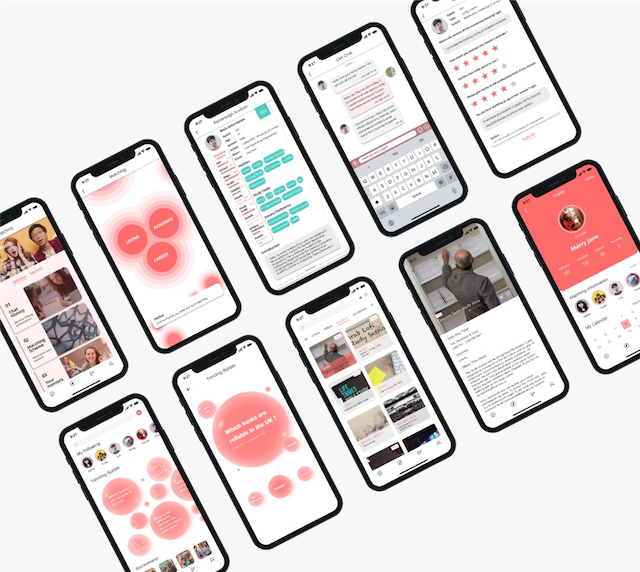
The Context
International students often have a difficult time integrating within social circles in their first year of University and feel as if they are unprepared for everyday tasks 1. Academic mentoring and networking events exist in many institutions, however they do not seem to be as effective as one-to-one mentoring. Our project proposed a Peer Mentoring Programme which seeks to offer a full range of services to students, from first years to recent graduates and alumni.
User Needs
In the context of our research, we established the following categories of user needs:
• Socialising: International Students have a hard time making friends with home students and connect in a meaningful way
• Lifestyle: Often students coming to the UK to study face difficulties understanding the healthcare system and other such systems
• Financial: Handling finances, such as housing, tuition fees and the cost of living can be challenging
• Career: Many international students do not know what work opportunities they will have once they finish studying
With these needs in mind, we began the initial phases of designing an app that would offer students a variety of services to help with those needs. The primary goal would be to connect international students with knowledgable home students who could offer their help.
Main Functions
We started with the 3 main functions and proposed a scheme for the Information Architecture. We also proposed two roles the students can take: mentors or mentees. Those with more experience can become mentors and those just starting out can be mentored.
Each function seeks to help students in different areas of their University life:
-
Community and General Info – oriented towards general information students need when beginning their academic journey;
-
Matching and Mentoring – geared towards lifestyle, academic and career improvement with individual mentors specialised in their particular category;
-
Events hub – offering online and in-person events not only for mentees or mentors, but students in general.
At this stage, each function would serve a clear purpose and work to solve a particular problem. Our matching function seeks to overcome compatibility issues between mentors and mentees and offers one-on-one sessions for better engagement. The community hub presents general information, interesting topics and provides a communal space for students to engage. Also, the events page will supply students with events that are career oriented.
Primary Research
In order to know what kind of difficulties students always meet with, and whether these problems are urgent, students were interviewed with an 8 question outline. From the eight respondents seven are students who came to London less than four months ago, and one is an alumni. These are the questions used in the interview.
-
How long have you been in London?
-
What was your feeling when you first came to London?
-
What difficulties you were met with when you first arrived in London?
-
How did you solve these problems?
-
Are these problems urgent?
-
What kind of problems do you still feel confused/ worried about?
-
If you still have questions, who do you want to ask for help? (For mentee)
-
If there is an opportunity that can help other students and is good for your CV, would you want to try it? (For mentor)
The interview’s results show that most of the new students faced problems related to social acclimatisation when they first came to a foreign country. Two of participants had financial issues, and two of them were met with renting problems and transportation problems. Nearly all of them thought communication to be an obstacle. Among these issues, only one student said a few of them are urgent, which means that there is a great need for helping them. The one student who has already graduated from school asserted that he is not satisfied with his current occupation and is looking for a side job to earn money.
User Journey Map and Personas
The following Journey map illustrates one user’s itinerary by summarizing the interview problems when studying abroad. The map is divided in three parts, before studying abroad - during studying abroad - and after graduation. The map considers the aspects of doing, thinking, opportunities and feeling. Following the interview, two personas were also generated for mentors and mentees.
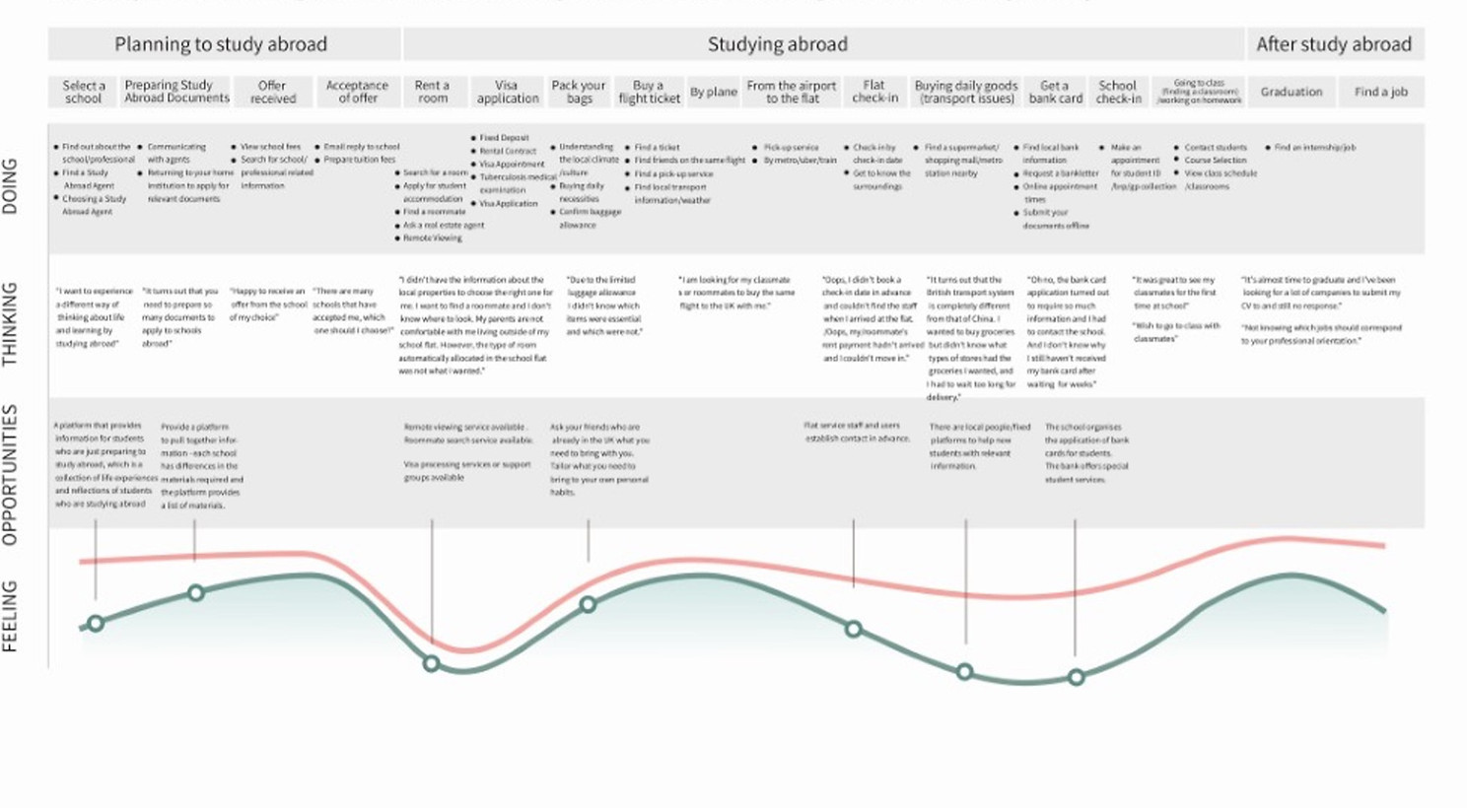
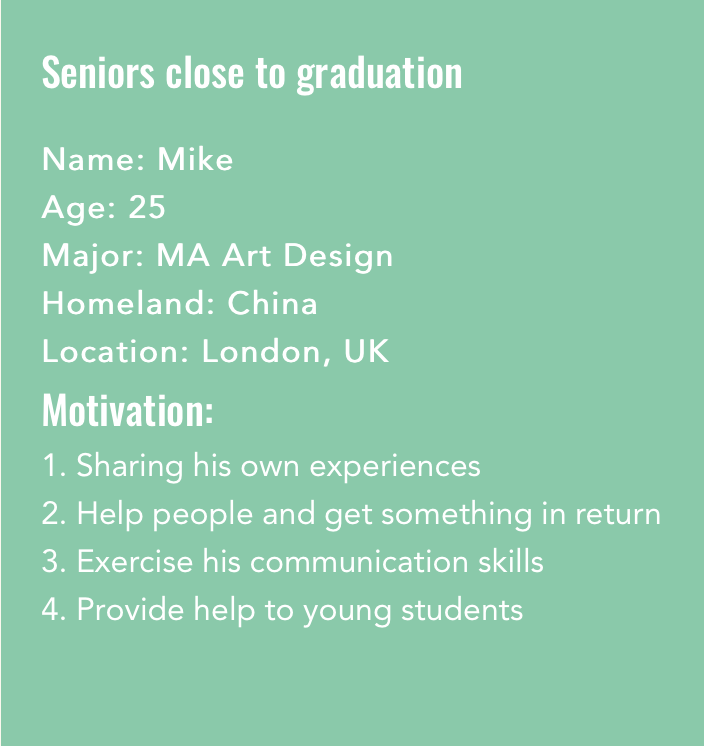
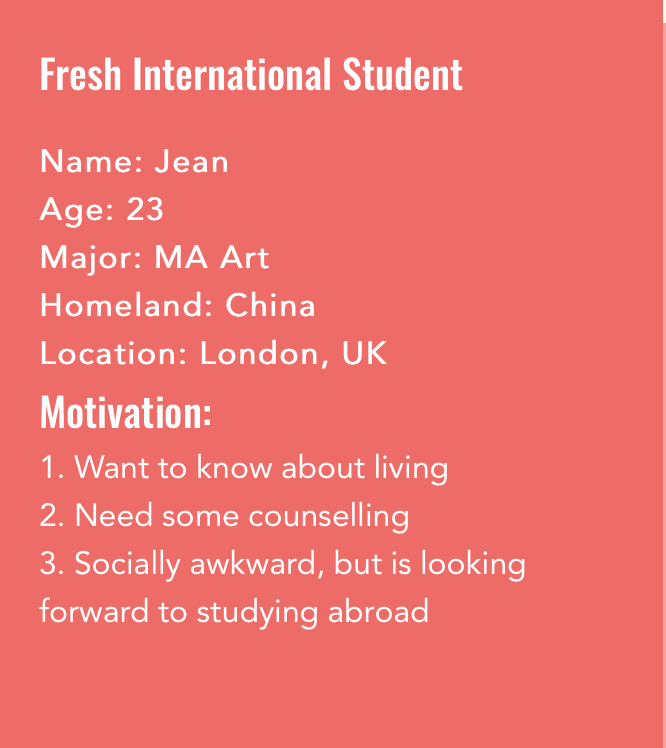
Functional Requirements
After research and analysis, this project firstly addresses a range of issues related to life and studies experienced by new students arriving in the UK. Secondly it addresses information related to the study abroad community (including information about the experience of applying to schools and finding a job after graduation).
The design is divided into three modules, the first of which provides a one-to-one matching function to offer the students who need it exclusive help. The second part provides a forum where users with problems can post their issues and others can help. Additionally, such posts can be shared in the forum to efficiently help people with the same problem.
The third section offers regular offline events. There are two types of offline events, the first is aimed at the tutor community and offers tutors the opportunity to meet new people and share their work experience at the same time. This feature resembles the structure of a company team building event. The second part is aimed at all University students and gives them the opportunity to meet new people.
Information Architecture and Lo-Fi prototype
We developed a basic structure for the information architecture and started working on lo-fi prototypes for how the app would work and look.
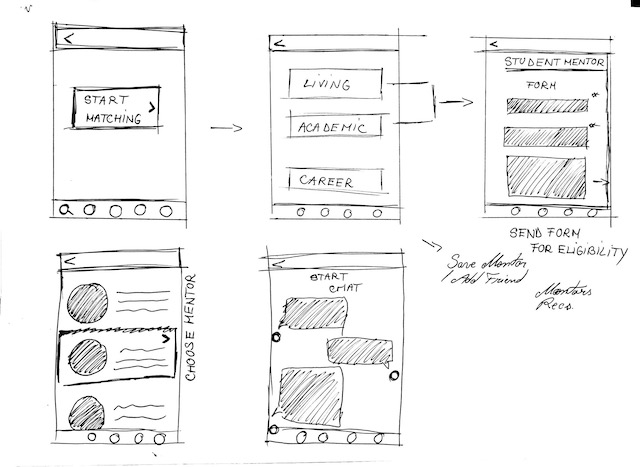
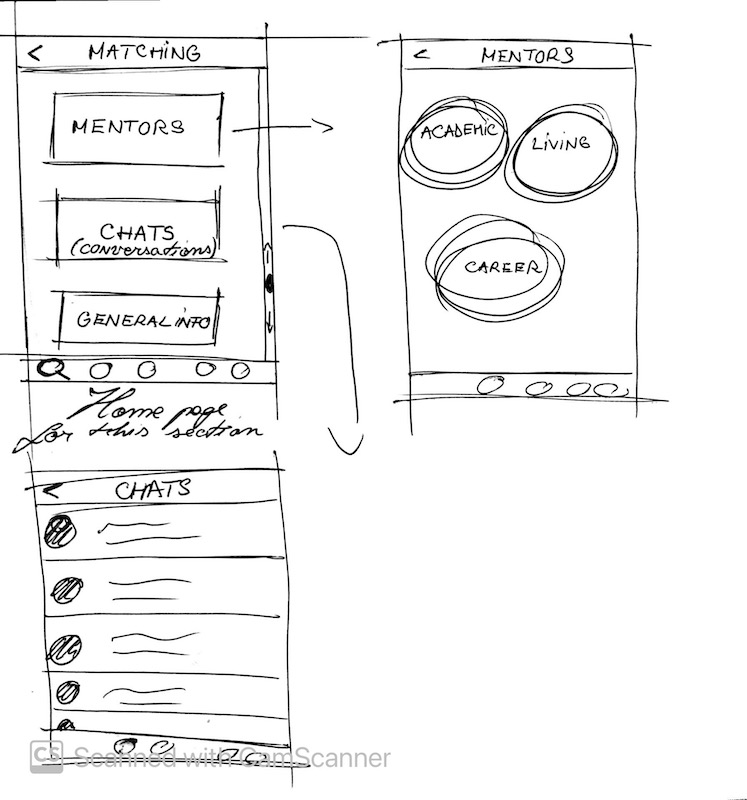
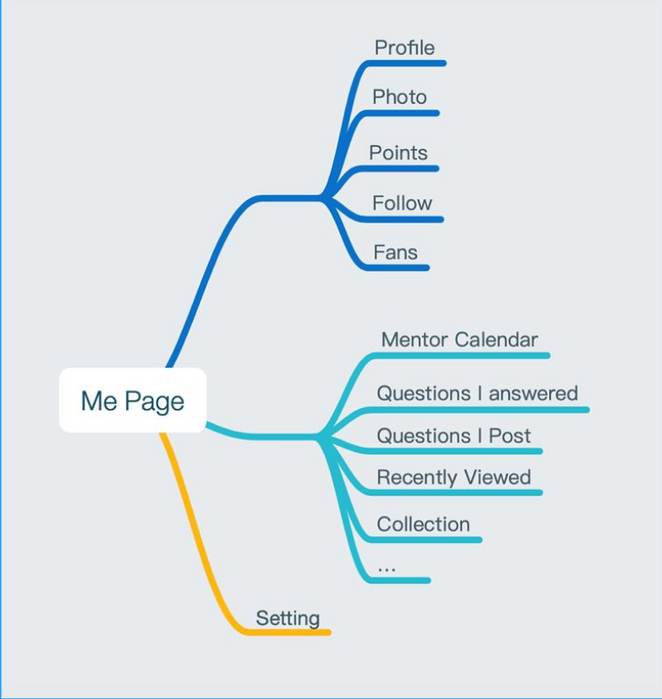
Stakeholders and Users
We established the stakeholders involved in our project, alongside the potential users and methods of researching these groups of people.
• Users: University Students, Alumni of the University;
• Stakeholders: Students, Teachers, The University;
• Research & Testing: Interviews, Observation of Use, Click test with prototype;
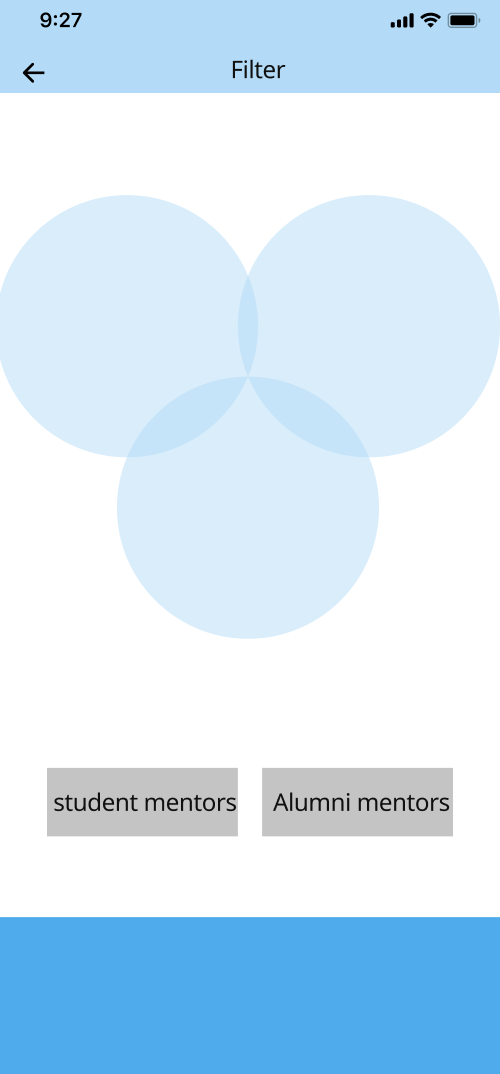
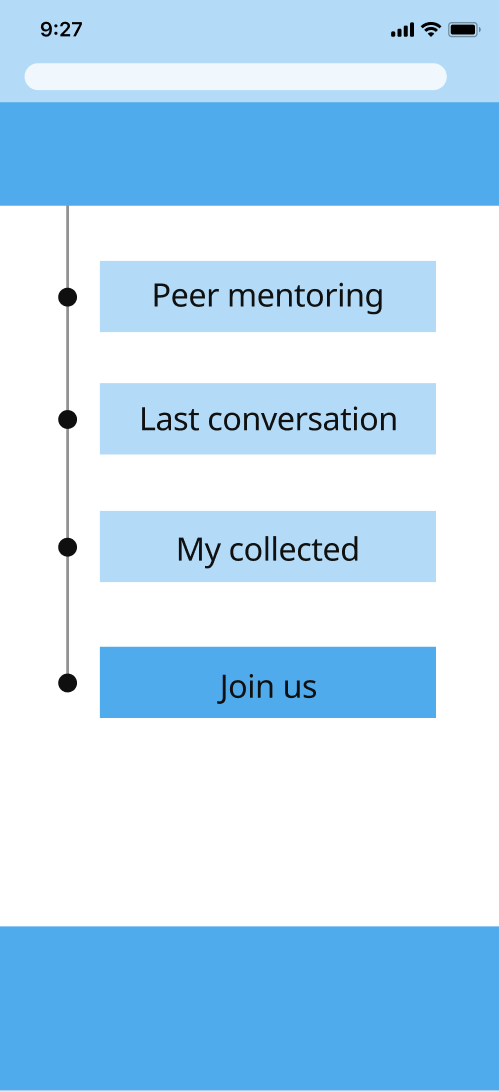
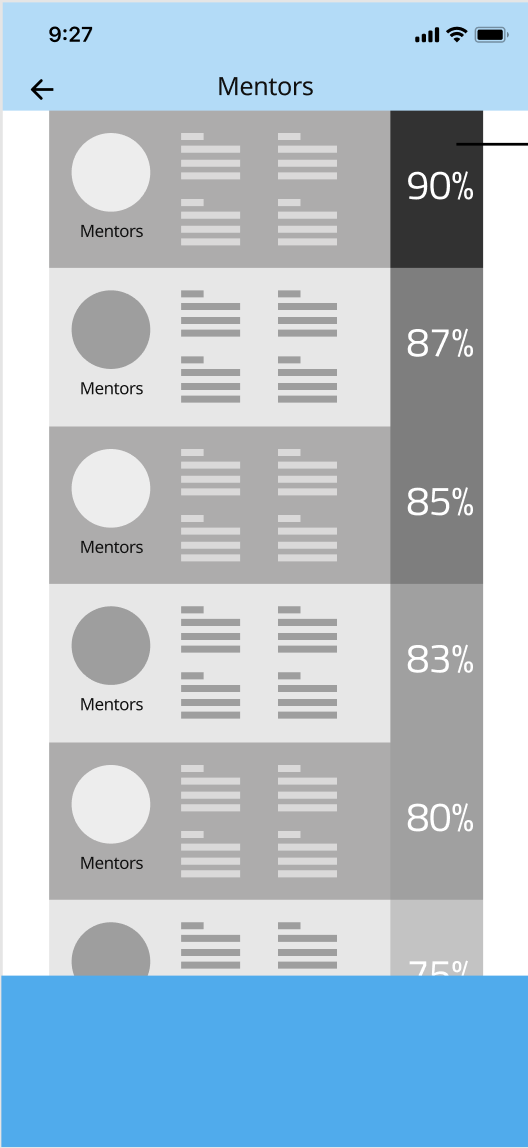
Testing and Observing
We tested some of the finalised pages with students to gather feedback. At the time we also held interviews to see how people feel about the functions and their role.
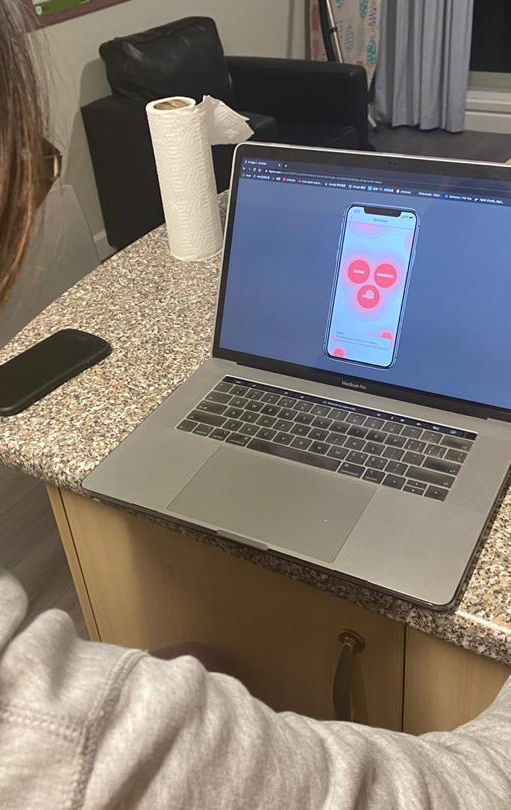

Hi-Fi Prototyping
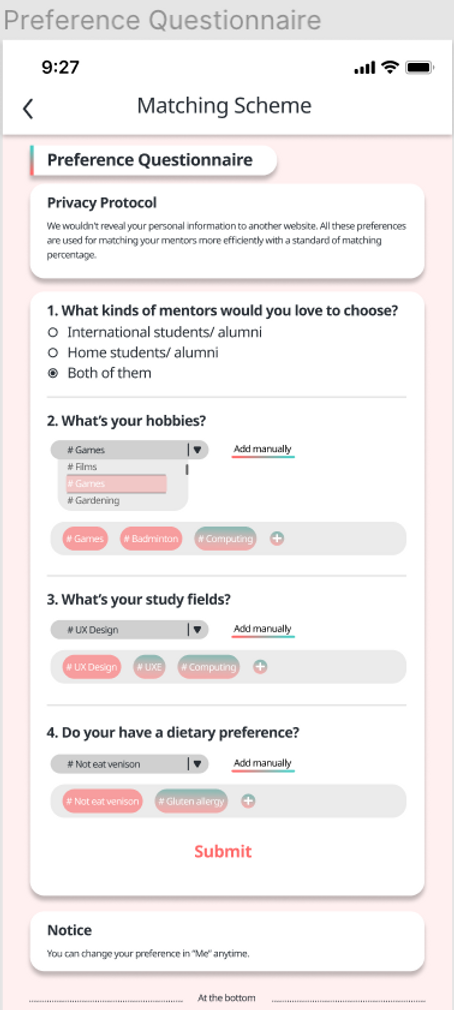
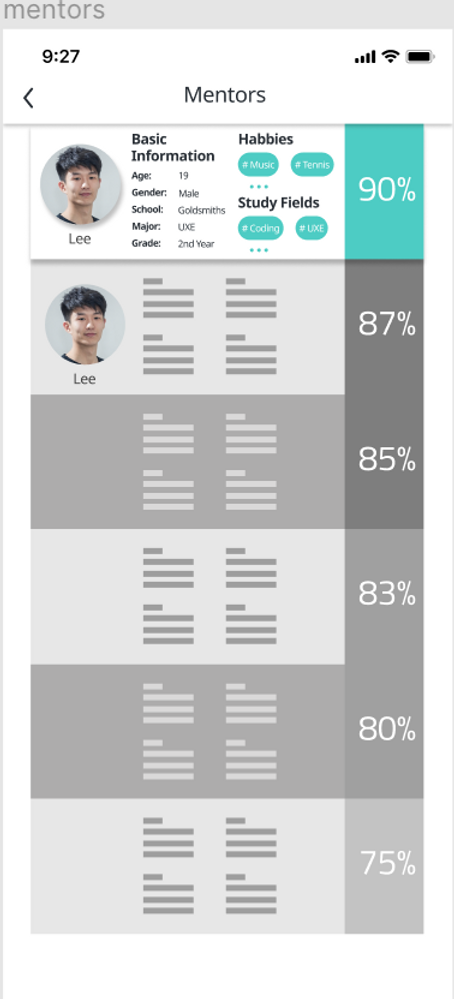
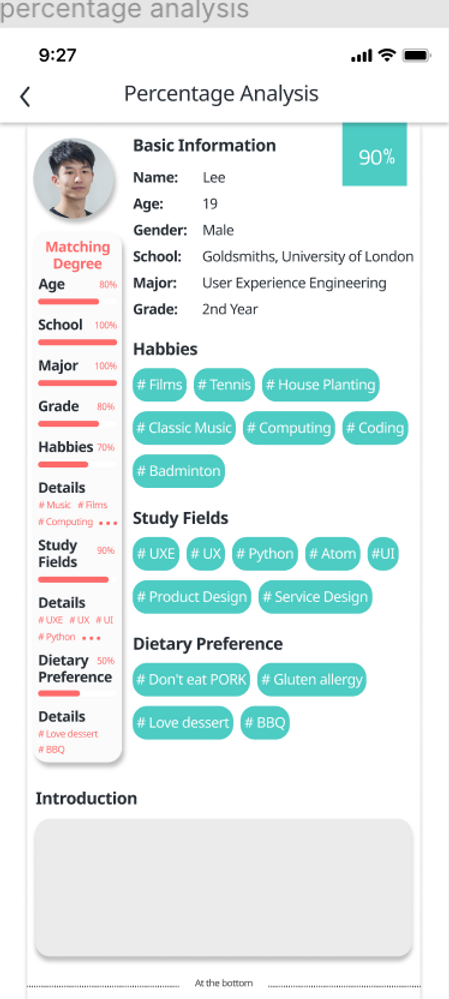

Questions, Issues, Considerations
After we finalised the prototype, we were still left with many questions. There were issues we encountered when designing and researching, and things that we could have perhaps done differently.
-
How can the matching function be improved?
-
How can we be more sensible to cultural differences?
-
How do we better assess the mentor's capabilities?
-
How do we ensure the privacy of our users within the University context?
These questions are still standing and need answering in the future. The privacy issue could be fixed by allowing students to log-in through Institutional login only. The assessment of mentors and the accessibility and cultural issues should be discussed with specialists in social sciences who could recommend appropriate guidelines.
(McMahon, 2011)